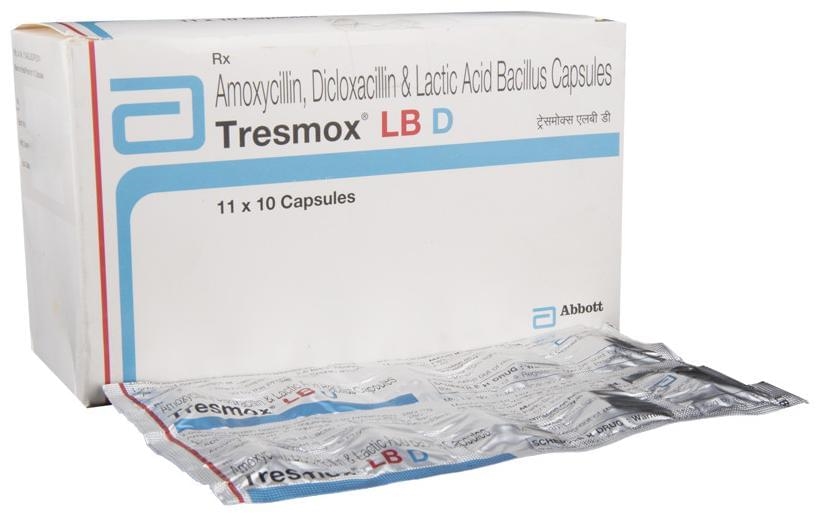Amoxycillin, Dicloxacillin, Lactobacillus
Amoxycillin is a semi-synthetic penicillin antibiotic, used to treat a wide range of bacterial infections. It is particularly effective against Gram-positive bacteria, including Streptococcus pneumoniae, Staphylococcus aureus, and Haemophilus influenzae. Amoxycillin works by inhibiting bacterial cell wall synthesis, leading to cell death and the eradication of the infection. It is often prescribed for conditions such as otitis media (middle ear infection), sinusitis, pharyngitis, and urinary tract infections.
Dicloxacillin is another semi-synthetic penicillin antibiotic, with a more extended spectrum of activity against Gram-positive bacteria, including methicillin-resistant strains. It is primarily used to treat skin and soft tissue infections, such as cellulitis, erysipelas, and impetigo. Like amoxycillin, dicloxacillin works by inhibiting bacterial cell wall synthesis, but it is more stable in the presence of beta-lactamase, an enzyme produced by some bacteria that can break down penicillins.
Lactobacillus is a genus of bacteria commonly found in the human gut, where it plays a crucial role in maintaining gut health and digestion. Probiotic strains of Lactobacillus are often used as dietary supplements to help restore the balance of gut microbiota after antibiotic treatment or to improve digestive health. Some Lactobacillus strains may also help prevent or alleviate certain gastrointestinal disorders, such as irritable bowel syndrome, and support the immune system.

Showing 13–24 of 69 results
Showing 13–24 of 69 results

